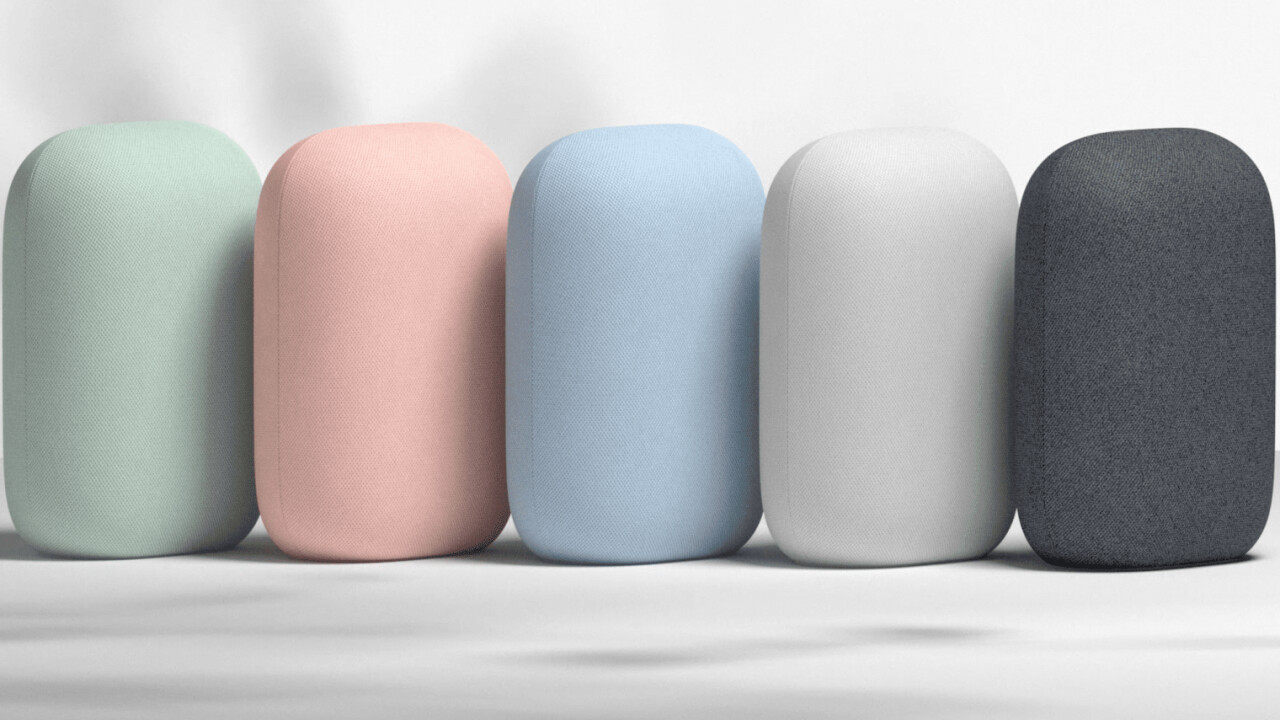
Google today introduced the Nest Audio, its latest smart speaker. The company is promising major audio improvements over the original Google Home speaker at a price of $100.
The device is covered in a classy-looking (and potentially cat-attracting) fabric, although it is made of 70% recycled materials, with a metal chassis on the inside. Key to the audio improvements are a new 19mm tweeter and 75mm mid-woofer. Combined with optimized software, Google says it can provide 50% more bass and 75% more volume than the original Google Home.
Though shy on technical specifics, Google says it “completed more than 500 hours of tuning to ensure balanced lows, mids, and highs so nothing is lacking or overbearing.”
It also says it “minimized the use of compressors to preserve dynamic range.” This is encouraging, as compression is one of the tell-tale limitations of speakers using software to enhance their sound. While a smart speaker may provide a surprising amount of bass, compression means that you don’t get much in the way of dynamics with that bass.
Compression is often built into smart speakers in order to prevent drivers from audibly distorting or getting damaged due to artificially-enhanced bass, but you need dynamics to help provide that sense of live music. Hopefully, Google has tuned things well enough to strike a good balance between sound quality and compression.
As with other Google Home devices, you can easily switch between various multiroom layouts for easy control over your whole-home audio. It’s Google’s clearest attempt at a Sonos competitor yet, though it’s worth noting said company is currently suing Google for patent infringement.
One neat feature is that the Nest Audio is able to EQ itself depending on ambient noise and content type. Podcasts and the Assistant may get louder while you’re cooking, for instance, and the speaker will EQ itself to highlight voices when listening to audiobooks and other spoken audio.
That said, Google says it will not automatically adjust the volume of music, and the speaker doesn’t seem to support the ‘Smart Sound’ room equalization in the Google Home Max. There’s also no wired input, though, on the plus side, the device does feature Bluetooth 5.0 support for those times you can’t use Chromecast.
Google notes the Assistant will also work faster than on the previous Google Home, as it now has a dedicated AI chip to handle voice commands. And for those of you concerned about Google listening in, the company says the provided mute switch is hardware-based, so theoretically no bad actors should be able to access a muted device.
The Nest Audio will be available in five colors for $99.99 starting October 5.
Get the TNW newsletter
Get the most important tech news in your inbox each week.




